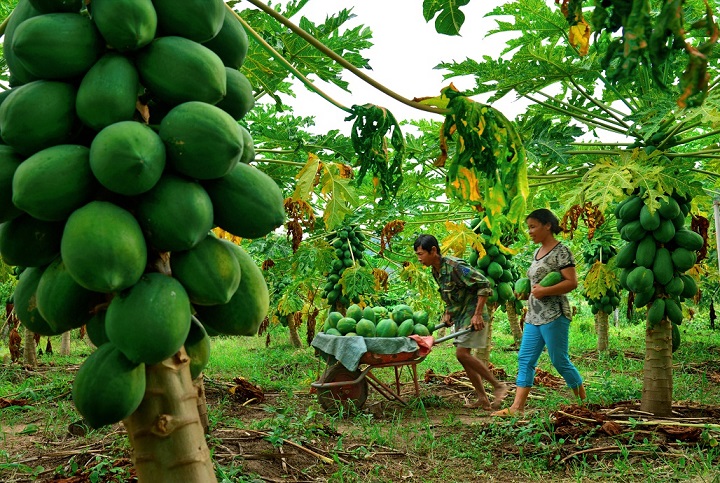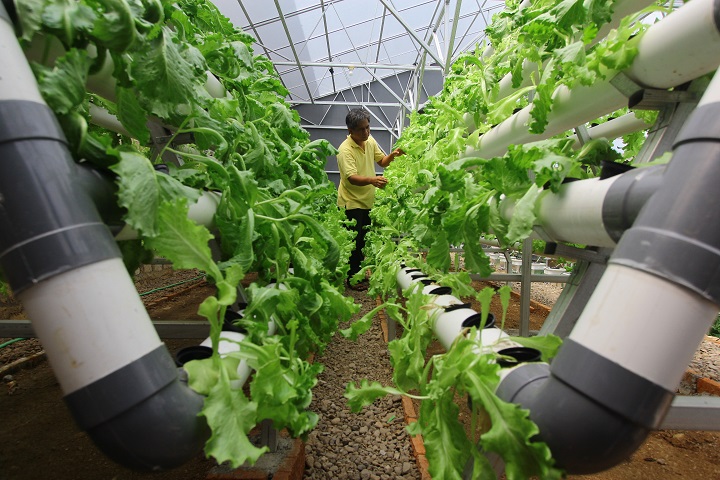Last week, The Manila Times sponsored an online forum titled “Food Security through Agribusiness and Digitalization” that was moderated by Conrad Carino, the paper’s agribusiness editor, and myself as columnist. The panel of experts was composed of Agriculture Secretary William Dar; Roberto Amores, chairman of the Agriculture Committee of the Philippine Chamber of Commerce and Industry; Cherrie Atilano, United Nations Ambassador for Nutrition and head of Agrea; Jairus Ferrer, founder and president of i-Farms, Inc.; and Dennis Tactac, president of the Philippine Society of Agricultural and Biosystems Engineers.
After the welcome and opening remarks of The Times Publisher and Chief Executive Officer Dante “Klink” Ang 2nd, Amores noted that there is much work to be done to raise the productivity of the Philippine agriculture sector and make it at par with that of its neighbors in the Association of Southeast Asian Nations. He revealed that the agricultural exports of countries like Indonesia, Thailand, Malaysia and Vietnam are worth more than $15 to $30 billion per year while the Philippines lags far behind at $6 billion. Moreover, our agricultural imports outstrip the value of our agricultural exports while neighboring countries have a net agricultural trade surplus. He stressed that the application of modern farm technology through agribusiness operations and digital agriculture will partly address the problem of low productivity of our agri-fishery sector.
 Photo: Le Minh Quat
Photo: Le Minh Quat
The ‘new thinking’
Dar shared his “new thinking” on developing the agriculture sector through his eight-point paradigm, which is anchored on farm consolidation, modernization and industrialization that can be achieved through inclusive agribusiness, provision of infrastructure and adequate budgetary support, and a supportive legal framework for growth translated into actual development plans or roadmaps. He revealed that digitalization, which he referred to as “Agriculture 4.0,” forms a vital part of modernizing Philippine agriculture. He added the Department of Agriculture has launched an e-commerce platform and is updating its digitalization of information on millions of farmers and fisherfolks to produce a master list (i.e., Farmers and Fishers Registry) to facilitate delivery of assistance to them.
Atilano shared her company’s experience in assisting farmers in the adoption of good agricultural practices (GAPs) in production and marketing their produce. Their project targets farmers from relatively remote island provinces, such as Marinduque and Bohol, which are isolated because of transport bottlenecks. Agrea makes sure farmers produce quality products, helps them find buyers, and assists them in transporting their products to buyers, many of whom they transact with through the internet using apps customized for their operations.
Tactac shared his organization’s experience in promoting farm mechanization and the use of digital technology. They have organized farm machinery and equipment fabricators and repair associations to support the proper use of farm machinery and equipment. He sees farm mechanization as vital in reducing farm production costs because of the rising labor costs in the country, and in ensuring correct postharvest handling of agricultural produce.
Ferrer, who is a millennial engaged in agriculture, developed an e-commerce platform that identifies suppliers of various agricultural commodities and links them with potential buyers. He noted a huge surge in the demand for their services during this pandemic. He sees enormous opportunities under the “new normal” in the digitalization of agriculture, from production and processing to transportation and marketing of agricultural products. This is an area where young entrepreneurs like him can significantly contribute to agricultural growth and the society, he noted.
 Photo: Dhana Kencana
Photo: Dhana Kencana
Agriculture, agribusiness and digitalization
Undeniably, under this pandemic, the role of e-commerce in marketing agricultural goods and food has grown tremendously. The trend will continue and become irreversible as we have seen in developed countries, where big brand consumer shops have been declaring bankruptcy because of competition posed by online sellers. As in any painful adjustment process, there are also opportunities for more enterprising individuals or groups. The very nature of digital technology skewed the bias of adjustment opportunities towards the country’s youth, as the birth of their generation coincided with the Fourth Industrial Revolution (i.e., advent of computers that resulted in massive data and information generation). Hence, they are adept in the use of such technology.
However, most of the advancements in the digitalization of agriculture in the country are in the downstream side, meaning in the transport and marketing of agricultural products and food. In developed economies, digitalization has also been applied, particularly on the farm production side through the use of drones or in the analysis of the moisture data, density of planting, monitoring of plant pests and diseases, and calculation of yields and harvest losses due to typhoons or other weather-related disturbances. The result is higher yields and lower production costs for farmers in these countries. This is the very essence of agribusiness that the DA is trying to instill among farmers, even our policy makers: that farming should be treated as a business and not only a means for survival of the cultivator and his family.
An indispensable element of promoting the agribusiness concept of farming is farm consolidation. The primordial element in agribusiness operations is economic and financial viability of the operations. After determining the presence of a market for a product, economies of scale in production should be achieved. One cannot possibly achieve that if the area for cultivation is fragmented to minuscule sizes of a hectare or below for farm lots. There will be a need to consolidate them to be able to introduce modern farm technologies, including machinery and equipment.
The Times’ online forum on attaining “Food Security through Agribusiness and Digitalization” unequivocally demonstrates the inextricable link among food security, agribusiness and digitalization. They are the very essence of the “modernization” and “industrialization,” thrusts of Dar for the Philippine agricultural sector.









